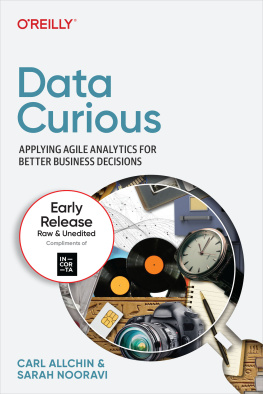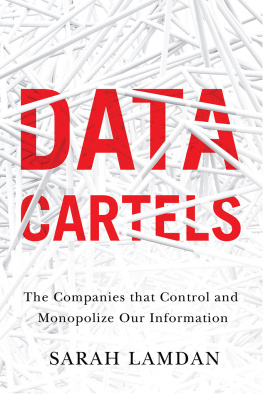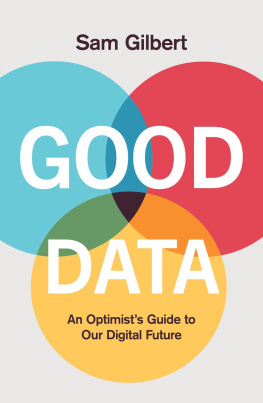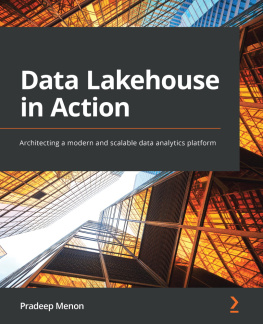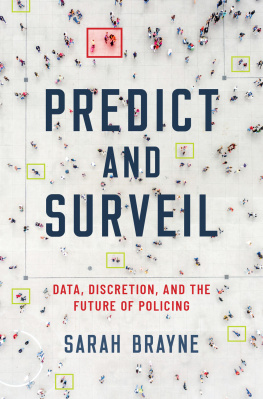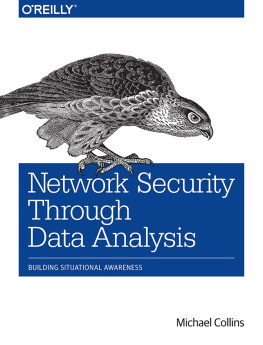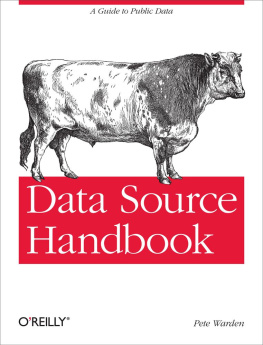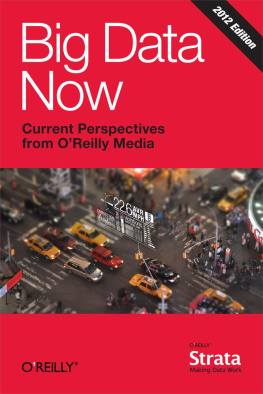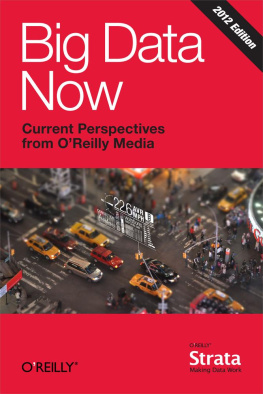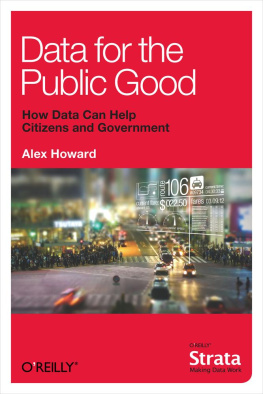Sarah Williams - Data Action: Using Data for Public Good
Here you can read online Sarah Williams - Data Action: Using Data for Public Good full text of the book (entire story) in english for free. Download pdf and epub, get meaning, cover and reviews about this ebook. year: 2020, publisher: MIT Press, genre: Politics. Description of the work, (preface) as well as reviews are available. Best literature library LitArk.com created for fans of good reading and offers a wide selection of genres:
Romance novel
Science fiction
Adventure
Detective
Science
History
Home and family
Prose
Art
Politics
Computer
Non-fiction
Religion
Business
Children
Humor
Choose a favorite category and find really read worthwhile books. Enjoy immersion in the world of imagination, feel the emotions of the characters or learn something new for yourself, make an fascinating discovery.

- Book:Data Action: Using Data for Public Good
- Author:
- Publisher:MIT Press
- Genre:
- Year:2020
- Rating:3 / 5
- Favourites:Add to favourites
- Your mark:
- 60
- 1
- 2
- 3
- 4
- 5
Data Action: Using Data for Public Good: summary, description and annotation
We offer to read an annotation, description, summary or preface (depends on what the author of the book "Data Action: Using Data for Public Good" wrote himself). If you haven't found the necessary information about the book — write in the comments, we will try to find it.
Data Action: Using Data for Public Good — read online for free the complete book (whole text) full work
Below is the text of the book, divided by pages. System saving the place of the last page read, allows you to conveniently read the book "Data Action: Using Data for Public Good" online for free, without having to search again every time where you left off. Put a bookmark, and you can go to the page where you finished reading at any time.
Font size:
Interval:
Bookmark:
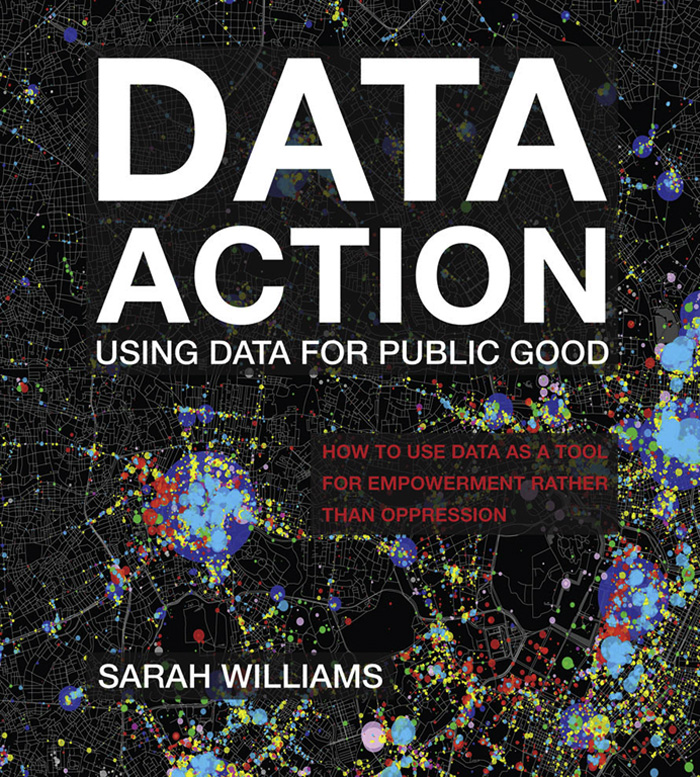
2020 Massachusetts Institute of Technology
All rights reserved. No part of this book may be reproduced in any form by any electronic or mechanical means (including photocopying, recording, or information storage and retrieval) without permission in writing from the publisher.
This book was set in Helvetica Neue and Minion by the MIT Press.
Library of Congress Cataloging-in-Publication Data
Names: Williams, Sarah, author.
Title: Data action : using data for public good / Sarah Williams.
Description: Cambridge, Massachusetts : The MIT Press, [2020] | Includes
bibliographical references and index.
Identifiers: LCCN 2019049202 | ISBN 9780262044196 (hardcover)
Subjects: LCSH: Public administrationData processing. | Information
behavior.
Classification: LCC JF1525.A8 W56 2020 | DDC 352.7/4dc23
LC record available at https://lccn.loc.gov/2019049202
10987654321
d_r0
To my father, the pitbull
- Chapter 3
- Introduction
- Chapter 1
- Chapter 2
- Chapter 3
- Chapter 4
- Chapter 5
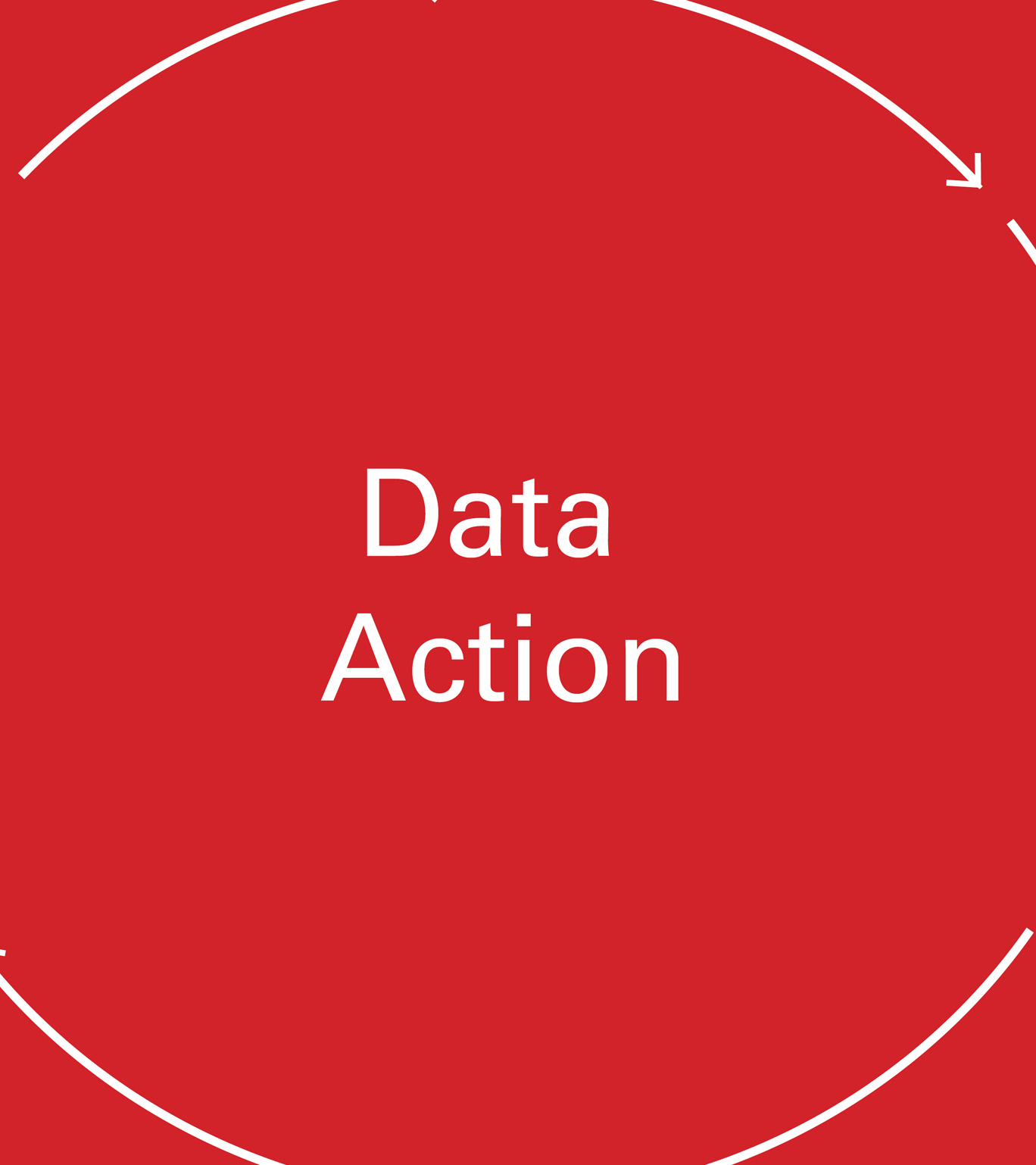
INTRODUCTION: USING DATA ACTION
As digital systems multiply across the urban landscape, they are producing immense streams of data that can help inform how we manage and plan cities. The potential now exists, at a scale previously unavailable, to directly measure issues that have been central to urban planning since its inception, such as equity, environment, value creation, service provision, public opinion, and the effects of physical form. But many city planners find their relationship with technology, data, and its use in communities to be an uneasy one. This tension primarily results from some of the ways quantitative analysis has been misused in the past. Data Action seeks to respond to this problematic history by illustrating tools and techniques that demonstrate how to use the power of data to enhance learning, provoke dialogue, and inspire policy change.
Data is a medium to construct and convey ideas, just as a collection of words makes a story, or an artist who uses paint provides an image of the world. Like words on a page or paint on a canvas, a message that is shared through data represents the thoughts and ideas of the person who shares it. Data analytics and the resulting insights communicated through visualizations have done tremendous good in the world, from easing and stopping disease to exposing exploitation and human rights violations. At the same time data analytics and algorithms all too often exclude women, the poor, and ethnic groups. How do we reconcile the potential of data to marginalize people and reinforce racism with its ability to end disease and expose inhuman practices? These two realities remind us that the same data, in the hands of different people, can produce wildly different outcomes for society because how people use data shows their vision of the world. That's what makes our use of data to change the world at once exciting and alarming.
Data Action presents a corrective to standard data practices by acknowledging that data represents the ideologies of those who control its use. Data has often been usedand manipulatedto make policy decisions without much stakeholder input. Data Action asks advocates of big data analytics to rethink how they work with data to make the process more responsive to the people their work affects. Collaboration with policy experts, government, designers, and the public is essential to my approach: it creates trust and co-ownership in the data analysis by allowing the work to be critiqued by those who know the issue the best. The Data Action principles allow for a creative process that involves building, analyzing, communicating results, and then ground-truthing the findings through site visits and interviewsthus reworking the analytics based on the input all along the way. The results generate policy debates, influence civic decisions, and inform design to help ensure that the voices of people represented in the data are neither marginalized nor left unheard.
Recognizing that data has the potential to be used as evidence for the development of unjust policies, Data Action provides guidance for identifying and correcting these practices in the work we do with data. Data Action focuses on the ways we can employ data for the greater good of society, or the public good. For the purposes of this book I define the subjective concept of the public good as practices that seek to do no harm, respond to the needs of those on the margins of society, expose unjust practices, and ultimately help educate us about our world so we can make better decisions. And, although it's impossible for us to be fully unbiased when pursuing the greater good of society, the methods outlined in Data Action attempt to expose biases so they can be addressed directly. Much of the methods laid out in this book were developed as I pursued my goals to use data as a tool for empowerment rather than oppression. My background in geography, community planning practice, architecture, and design uniquely framed these ideas.
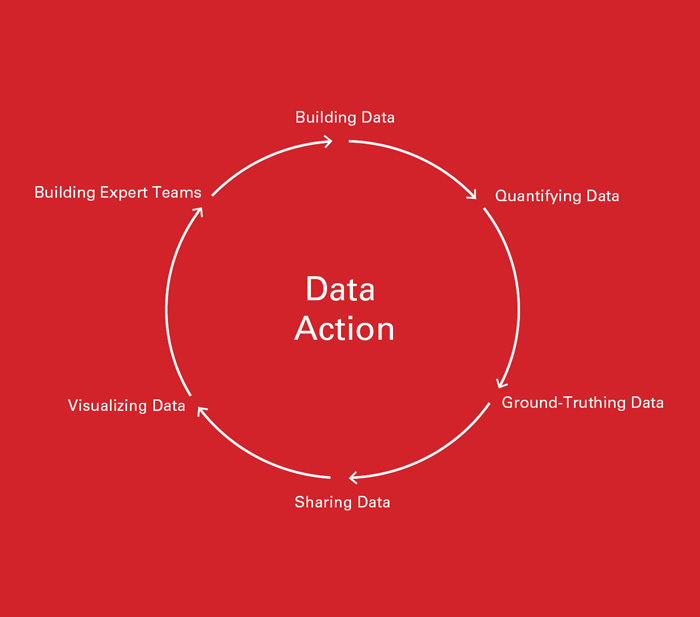
0.1
Incorporating collaborative planning practices with data analytics sets this work apart because it includes the voices of the people in the process. This helps make the work more ethical but also builds new communities of interest through their shared work with data.
The collection and use of data has had lasting effects on our cities; the use of data in upholding segregation is perhaps the most dramatic example. Although most surveys try to eliminate biases, it is nearly impossible to eradicate them altogether. Data analysts and policy makers must be aware of how bias affects decision making in our increasingly data-driven society. Let's take, for example, the biases embedded a simple phone survey about political issues. The type of person who will answer a phone survey (i.e., the provider of the data) has certain predispositions. I, for one, am too impatient to agree to take a phone survey. The survey records the voices of those who participate, which in our example are simply people who take the time, whether they have a stake in the outcome or not. They are, in that sense, self-selected. This can create bias. Survey designers attempt to make their questions neutral so as not to prejudice answers, but they still have agendas (and sometimes the phrasing of questions, or what issues the question addresses, betrays those agendas). Ethical surveyors try to eliminate leading questions. All too often, however, surveys are performed to support existing positions, and questions are either intentionally or unintentionally framed to generate data that support those viewpoints.
Data Action, as a book and a methodology, is a call to action that asks us to rethink our methods of using data to improve or change policy. In these pages, as the following chapter summaries explain, I provide examples from my own work and the work of others. I begin in chapter 1 by framing the discussion with a look at how we have used data since the earliest civilizations to control and manage society, with uneven results, especially for those people living on the margins.
Font size:
Interval:
Bookmark:
Similar books «Data Action: Using Data for Public Good»
Look at similar books to Data Action: Using Data for Public Good. We have selected literature similar in name and meaning in the hope of providing readers with more options to find new, interesting, not yet read works.
Discussion, reviews of the book Data Action: Using Data for Public Good and just readers' own opinions. Leave your comments, write what you think about the work, its meaning or the main characters. Specify what exactly you liked and what you didn't like, and why you think so.

